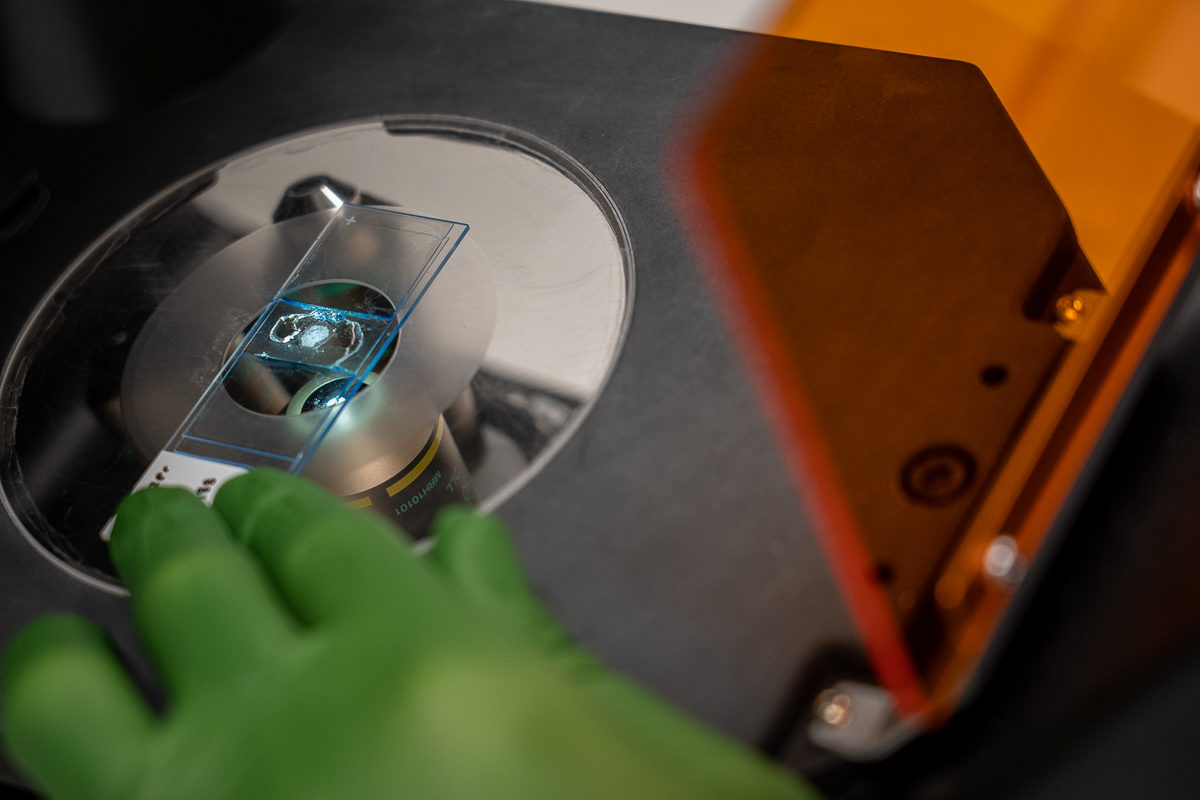
Ten USC Stem Cell PhD students and recent graduates have been awarded fellowships from the National Institutes of Health (NIH). Known as F31 awards, these prestigious fellowships provide promising PhD students with mentored research training with the long-term goal of developing into productive, independent research scientists.
“We are incredibly proud of our PhD students from the Development, Stem Cells and Regenerative Medicine (DSR) program at the Keck School of Medicine of USC,” said Professor Gage Crump, faculty director of the DSR program and interim chair of the Department of Stem Cell Biology and Regenerative Medicine. “Nearly half of USC’s PhD students with F31s are in the DSR program—a testament to the remarkable talent and hard work of our cohort.”
Three of the F31 winners, Claire Arata, Mathi Thirupathy, and Tuo Shi, are PhD students in the Crump Lab. Arata is investigating the ability of zebrafish to naturally regenerate their cartilage, with implications for novel arthritis treatments in the future. Thirupathy is studying how subtypes of cartilage diverge during embryonic development, and how this goes awry in craniofacial syndromes. Shi is exploring how zebrafish, unlike mammals, retain an ability to regenerate the sensory cells of the inner ear and restore damaged hearing.
Two recently graduated students in the lab of the late Neil Segil, John Duc Nguyen and Talon Trecek, used their F31 awards to understand barriers to hair cell regeneration in the damaged ear.
Two additional F31 winners, current PhD student Riana Parvez and recent PhD graduate Helena Bugacov, are members of Andy McMahon’s lab. Parvez is working to understand the development of a type of kidney cell called an intercalated cell, which is important for maintaining pH balance. Bugacov provided new insights into the regulators determining whether progenitor cells multiply themselves or form the more specialized cells of the nephron, which is the filtering unit of the kidney.
Joshua Berlind, a recent PhD graduate who is now a postdoc in Justin Ichida’s lab, used his F31 grant to develop lab-grown human brain structures, called organoids, for studying traumatic brain injury on a molecular level.
Charles Bramlett, a recent PhD graduate from Rong Lu’s lab, used his F31 grant to study how alterations in blood stem cells lead to leukemia.
Audrey Nickle, an F31 recipient in Amy Merrill-Brugger’s lab, is studying the genetic and molecular underpinnings of the premature fusion of the skull sutures, known as craniosynostosis, which can occur as part of Bent Bone Dysplasia Syndrome.
“We are grateful for the NIH’s strong investment in our PhD students,” said Andy McMahon, director of the Eli and Edythe Broad Center for Regenerative Medicine and Stem Cell Research at USC. “The F31 grant is a very important milestone for our students as they progress in their independent research careers, grow as scientists, and make meaningful contributions to our understanding of human health and disease.”
